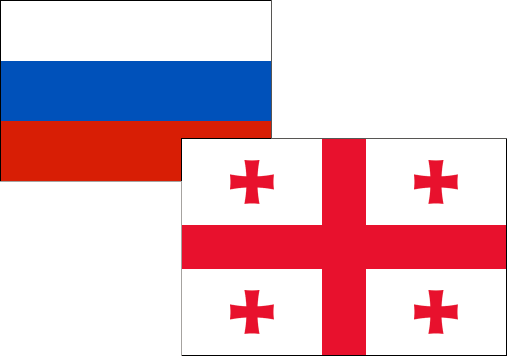Georgia still bears scars one year after its war with Russia
 Tbilisi - Since last summer's war with Russia over the country's breakaway provinces, Georgia's President Mikheil Saakashvili may have felt at times like a man under siege.
Tbilisi - Since last summer's war with Russia over the country's breakaway provinces, Georgia's President Mikheil Saakashvili may have felt at times like a man under siege.
The situation remains tense along the administrative borders to South Ossetia and Abkhazia, while on the home front Saakashvili experienced a three-month blockade of parliament, coupled with demands for his resignation.
Since the five-day war in early August 2008, Russia and Georgia have launched international public-relations offensives, blaming each other for the conflict which claimed several hundred lives and displaced thousands in the disputed areas.
A six-point peace deal, hammered out under France's rotating European Union presidency, mandated an EU mission to monitor activities on both sides of the administrative border lines (ABL) separating the breakaway territories.
Prevented from fulfilling that mandate in Abkhazia and South Ossetia, the EU monitors rely on information from Georgian police and army checkpoints, supplemented with second-hand impressions gleaned from civilians crossing the ABL.
The monitors have built up tentative relations with the militia and Russian border guards controlling access to the breakaway regions, a task made difficult by the fact that the local militia are often drunk and unpredictable.
Hansjoerg Haber, the head of the EU mission, believes their presence has helped stabilize the region, especially as long-standing United Nations and Organization for Security and Cooperation in Europe missions had to withdraw after Russia vetoed a renewal of their mandate.
"Both sides are scared of a resumption of the conflict," Haber said, adding that, in the case of renewed hostilities, "they know that the (EU) mission is on the ground and that we would certainly discover who had started."
Despite the gradual progress at ground level, diplomatic talks in Geneva are moving at a painstaking pace.
International talks that began in November and are aimed at stabilizing the region, have failed to advance on security cooperation and have done little to prevent border incidents.
As recently as June, an explosive device left near the ABL claimed the life of a Georgian driver working with the EU mission.
Refugees from the war are still unable to settle back home, adding to the social and economic hardship for several hundred thousand people displaced by previous conflicts in the region.
Moscow is making any advances on security and humanitarian issues dependent on formal recognition of independence for South Ossetia and Abkhazia, a lead that only Nicaragua has followed.
Meanwhile, Saakashvili has worn European patience thin, but has one trump card left as the United States remains steadfast in its support.
In July, US Vice President Joe Biden visited Tbilisi with a resounding pledge of the US' commitment to Georgia's territorial integrity and the advance of democracy, although the rhetoric is more measured in Washington.
At home, Saakashvili appears to remain immune to public discontent at his handling of the war and economic woes in a country with 17 per cent unemployment.
In April and May, angry demonstrators took to the streets of Tbilisi demanding his resignation, and blocked the six-lane traffic artery running past the parliament.
However, Georgia's fractured opposition parties appear unable to rally round a single candidate who could challenge Saakashvili's charismatic leadership.
The latest contender is Irakli Alasania, Georgia's former representative to the UN. His newly formed party, Our Georgia, is calling for a democratic opening of the political landscape, to set the tone for early elections.
If nothing else, the opposition is united in its criticism of Saakashvili's "one-man state," a point made by Public Defender Sozar Subari.
"The main problem is that all decisions are made by one person and his friends," Subari said.
While such a concentration of power was seen as expedient to push through much-needed changes, opposition politicians argue that the lack of consultation also led to bad choices, such as the decision to to go to war with Russia.
In addition to the human toll, the war caused an estimated 1 billion dollars of structural damage. Even worse however, was the effect on investor confidence which saw foreign funding dry up.
A generous 4.55-billion-dollar international aid pledge gave the economy an initial boost, only for it to succumb to the effects of the international economic crisis.
Georgia's political turmoil, caused in part by economic woes, has further dented the country as foreign investors remain wary of instability within Georgia and with its neighbour, Russia.
"The damage from the war and the political uncertainty that has developed since then ... has really hurt in terms of confidence," said Edward Gardner, the IMF's senior representative in Georgia.
For now, at least, the tensions over Abkhazia and South Ossetia appear to have reached an uneasy stalemate, as both Russia and Georgia have more to lose than to gain by rekindling the conflict.
Internally, the political threat to the president has dwindled for the time being. Bolstered by Biden's visit, Saakashvili ensured the remaining demonstrators were cleared in front of parliament.
While anything can happen ahead of presidential elections scheduled for 2013, for now the Georgian president appears to have risen again, phoenix-like, from the ashes. (dpa)